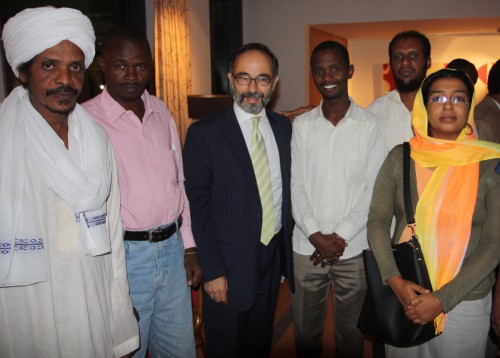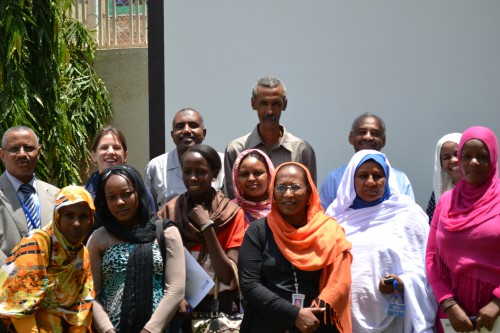5th May 2014
Press Freedom Day
Saturday was World Press Freedom Day. I marked the occasion by attending a celebration at the Omdurman University College for Press and Printing Technology. Apparently it’s the first time that an academic institution in Sudan has held such an event. It was well attended by a number of very senior, distinguished and courageous figures from the media scene in Sudan.
I was not able to follow the speeches in detail because (sadly) my Arabic is not good enough, although I am still working away at it. But some key messages came through:
– the courage of many journalists in Sudan and elsewhere in standing up for press freedom,
– the importance of press freedoms as a basic human and civic right and as crucial component of democratic accountable government,
– Insistence that press freedom is not a threat to Government but a mechanism for informed and healthy debate which in the long term strengthens society.
Support for press freedom is an important aspect of the work of this embassy. We regularly raise the issue with the Government. We were particularly concerned at a spate of seizures of newspapers in March. We know what devastating economic consequences for the newspapers these can have. Encouragingly some people I spoke to on Saturday thought there had been some relaxation in Government controls since then, in the context of preparations for National Dialogue. If so, and if sustained, this would be very welcome. But there is clearly some way to go before press freedoms in Sudan are fully respected. The current Press Freedom Index puts Sudan at 170 out of 179 countries.
We are also helping in practical ways. We continue to run a major programme of training for Sudanese journalists, with the support and patronage of the Sudanese Press Council. This is entirely non-political. The training concentrates on English language and the key skills required for good journalism: accurate and balanced reporting, clear distinction between fact and opinion, telling a good story and so on. We have seen signs already of how journalists have benefitted from the programme to produce better quality journalism.
Our support for press freedom is not limited to Sudan. It is a priority for British diplomacy globally. As highlighted in the Foreign Office’s Human Rights Report, our embassies regularly highlight the need to tackle impunity for attacks on journalists. Where we are concerned about harassment, intimidation and assassination of journalists, we raise individual cases, call for prompt and full investigations and support criminal justice mechanisms and judicial reform to deal with attacks.


Your effort I n the Sudanese society is great . Hope that the embassy will continue its support to journalists through the project of training and encourage young journalists ,we noticed that the embassy already prepared a good project for them ,thank you
Mr.Peter for your personal effort.
Thanks for a balanced view that acknowledges the progress our country is making on this front and for recognising the role of our Press and Publications Council.The experience of the democratic UK is like a lighthouse for us. We followed closely the end of the Press Complaints Commission and the establishment of a new body with some teeth and is headed by a senior judge.We did not regret the end of News International’s hegemony.
In fairness ,the BBC is the only major international media outlet that offers us the chance to explain and defend Sudan’s policies(including those that are not in line with UK policies)This is impressive.Criticism of government policy by our press is a duty ;but only when it is homegrown .